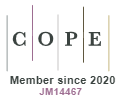Nothing will be the same: a comparative review of the scientific literature on remote work before and after COVID-19
DOI:
https://doi.org/10.5585/2025.25448Keywords:
remote work, COVID-19, telecommuting, digital transformation, systematic literature reviewAbstract
Objective: The aim of this study is to analyze the evolution of the scientific literature on remote work by comparing the periods before and after the COVID-19 pandemic, to understand how the pandemic has reconfigured work dynamics and propelled research in new directions.
Methodology: We employed a bibliometric approach, utilizing visual maps generated by VOSviewer based on data indexed in the Web of Science. This methodology allowed us to illustrate trends and paradigmatic changes in remote work research, providing a detailed comparative analysis of the two periods in question.
Originality/Relevance: A theoretical gap related to understanding the transformations in remote work in response to the COVID-19 pandemic is adressed. The academic relevance lies in the need to comprehend these changes to guide future research and work practices.
Results: The results indicate an exponential increase in the number of annual publications on remote work, as well as a shift in research focuses, evidencing an evolution in theoretical and practical approaches to the topic.
Theoretical/Methodological Contributions: The study contributes to the existing literature by offering a comparative view of the evolution of research on remote work and highlighting how the COVID-19 pandemic served as a turning point in academic and professional discussions on the subject.
Social/Management Contributions: The insights generated by this study have significant implications for researchers, practitioners, and policymakers, providing a solid foundation to navigate and shape the future of work in a digital and flexible context. It highlights the importance of adapting work practices to the new realities imposed by the pandemic.
Downloads
References
Alipour, J., Fadinger, H., & Schymik, J. (2021). My home is my castle–The benefits of working from home during a pandemic crisis. Journal of Public Economics, 196, 104373. https://doi.org/10.1016/j.jpubeco.2021.104373
Baert, S., Lippens, L., Moens, E., Weytjens, J., & Sterkens, P. (2020). The COVID-19 crisis and telework: A research survey on experiences, expectations and hopes. https://www.iza.org/publications/dp/13229/the-covid-19-crisis-and-telework-a-research-survey-on-experiences-expectations-and-hopes. ISSN: 2365-9793
Belzunegui-Eraso, A., & Erro-Garcés, A. (2020). Teleworking in the Context of the Covid-19 Crisis. Sustainability, 12, 3662-3680. https://doi.org/10.3390/su12093662
Bezerra, A., Silva, C., Soares, F., & Silva, J. (2020). Factors associated with people’s behavior in social isolation during the COVID-19 pandemic. Ciência & Saúde Coletiva, 25(1), 2411-2421. https://doi.org/10.1590/1413-81232020256.1.10792020
Brussevich, M., Dabla-Norris, E., & Khalid, S. (2020). Who will Bear the Brunt of Lockdown Policies? Evidence from Tele-workability Measures Across Countries. IMF Working Paper, WP/20/88, 1-24.
Choudhury, P., Foroughi, C., & Larson, B. (2020). Work-From-Anywhere: The Productivity Effects of Geographic Flexibility. https://www.webofscience .com/wos/ woscc/full- record/ WOS: 00059 12 17 600001
Collewet, M., & Sauermann, J. (2017). Working Hours and Productivity. Labour Economics, 47, 96-106. https://doi.org/10.1016/j.labeco.2017.03.006
Costa, A. R., Alves, G. R., & Moura, A. (2020). A bibliometric analysis of 10 years of EDUCON (2010-2019). In 2020 IEEE Global Engineering Education Conference (EDUCON), (27-30 April 2020, Porto, Portugal), A. Cardoso, G.R. Alves and M.T. Restivo Eds. IEEE, USA, 1831-1835.
DOI: http://dx.doi.org/10.1109/EDUCON45650.2020.9125206.
De Clercq, D. (2020). I Can’t Help at Work! My Family Is Driving Me Crazy! How Family-to-Work Conflict Diminishes Change-Oriented Citizenship Behaviors and How Key Resources Disrupt This Link. The Journal of Applied Behavioral Science, 56(2), 166-194.
https://doi.org/10.1177/0021886320910558
Drumea, C. (2020). Work-related stress and subsequent productivity in a teleworking environment induced by pandemic-related
confinement. evidence from the public organizations. Ovidius University Annals: Economic Sciences Series, 20(1), 337-341. https://doi.org/10.1007/s11123-011-0226-2
Eurofound and the International Labour Office (2017). Working Anytime, Anywhere: The Effects on the World of Work. Publications Office of the European Union and the International Labour Office. https://www.eurofound.europa.eu/publications/ report/
/working-anytime-anywhere-the-effects-on-the-world-of-work. https://doi.org/10.2806/372726
Gallup (2017). State of the Global Workplace. Gallup Press.
Henry, M., Le Roux, D., & Parry, D. (2021). Working in a post Covid-19 world: Towards a conceptual framework for distributed work. South African Journal of Business Management, 52(1), 1-11. https://doi.org/10.4102/sajbm.v52i1.2155
Korb, S., & Souza, W. (2022). Estresse ocupacional e processos cognitivos de professores na pandemia da COVID-19. Paidéia (Ribeirão
Preto), 32, 1-9. https://doi.org/10.1590/1982-4327e3237
Leite, A., & Chambel, M. (2018). O papel da conciliação família trabalho nas empresas. In M. Cunha (Coord.), Desafios à conciliação família trabalho (pp. 22-35). Nova School of Business and Economics.
Mendes, I. C. C. R. (2022). Trabalho remoto: Uma perspetiva da literatura antes e depois do surgimento da COVID-19 [Dissertação de Mestrado, Universidade Lusófona de Humanidades e Tecnologias]. Disponível em: https://recil.ulusofona.pt/server/api/core/bitstreams/8e438ac7-4ffe-4a4f-8ce3-24138dd06868/content
Morikawa, M. (2020). COVID-19, teleworking, and productivity. https://voxeu.org/article/covid-19-teleworking-and-productivity
Nakrošienė, A., Bučiūnienė, I., & Goštautaitė, B. (2019), Working from home: characteristics and outcomes of telework, International Journal of Manpower, 40(1), 87-101. https://doi.org/10.1108/IJM-07-2017-0172
Ozimek, A. (2020). The Future of Remote Work. https://www.upwork.com/press/releases/the-future-of-remote-work
Pereira, M., Oliveira, L., Costa, C., Bezerra, C., Pereira, M., Santos, C., & Dantas, E. (2020). A pandemia de COVID-19, o isolamento social, consequências na saúde mental e estratégias de enfrentamento: uma revisão integrativa. Research, Society and Development, 9(7), 1-32. https://doi.org/10.33448/rsd-v9i7.4548
Ramos, C., Rodrigues, R. I., & Veloso, C. (2022). Produtividade durante o período de confinamento: Portugal versus Brasil. Revista Vianna Sapiens, 13(2), 1-32. https://doi.org/10.31994/rvs.v13i2.888
Rocha, C., & Amador, F. (2018). O teletrabalho: conceituação e questões para análise. Cadernos Ebape, 16(1), 152-162. http://dx.doi.org/10.1590/1679-395154516
Sako, M. (2021). Technology strategy and management: From remote work to working from anywhere. Communications of the ACM, 64(4), 20-22. https://doi.org/10.1145/3451223
Soares, S., Picolli, I., & Casagrande, J. (2018). Pesquisa bibliográfica, pesquisa bibliométrica, artigo de revisão e ensaio teórico em administração e contabilidade. Administração: Ensino e Pesquisa, 19(2), 308-339. https://doi.org/10.13058/raep.2018.v19n2.970
Soomro, A., Breitenecker, R., & Shah, S. (2018). Relation of worklife balance, work-family conflict, and family-work conflict with the employee performance-moderating role of job satisfaction. South Asian Journal of Business Studies, 7(1),129-146. https://doi.org/10.1108/SAJBS-02-2017-0018
Tavares, F., Santos, E., Diogo, A., & Ratten, V. (2020). Teleworking in portuguese communities during the COVID-19 pandemic. Journal of Enterprising Communities: People and Places in the Global Economy, 14, 1-16. https://doi.org/10.1108/JEC-06-2020-0113
Teixeira, C., Soares, C., Souza, E, Lisboa, E., Pinto, I., Andrade, L., & Espiridião, M. (2020). A saúde dos profissionais de saúde no enfrentamento da pandemia de Covid-19. Ciência & Saúde Coletiva, 25, 3465-3474. https://doi.org/10.1590/1413-81232020259.19562020
Vaziri, H., Casper, W., Wayne, J., & Matthews, R. (2020). Changes to the Work-Family Interface During the COVID-19 Pandemic: Examining Predictors and Implications Using Latent Transition Analysis. Journal of Applied Psychology, 105(10), 1073-1087. http://dx.doi.org/10.1037/apl0000819
Wolor, C., Solikhah, Susita, D, & Martono, S. (2020). How to Maintain Employee Motivation Amid The Covid-19 Virus Pandemic. International Journal of Economics and Business Administration, 8(4), 78-86. https://www.ijeba.com/journal/570/download. https://doi.org/10.35808/ijeba/570
Published
How to Cite
Issue
Section
License
Copyright (c) 2025 Helena Martins, Alexandra Costa, Rosa Isabel Rodrigues, Izabeth Rodrigues

This work is licensed under a Creative Commons Attribution-NonCommercial-ShareAlike 4.0 International License.
- Abstract 401
- Tradução para o inglês 143
- Idioma original (Português (Brasil)) 86
Funding data
-
Faculdade de Ciências e Tecnologia, Universidade Nova de Lisboa
Grant numbers UIDB/05422/2020









